The child started with dryness (the skin on his cheeks became rough), and now it’s completely flaky, I’ll attach a photo of what to do.
I don’t know, maybe it’s because milk gets on his face (when breastfeeding, it sometimes flows like a fountain onto his face), maybe because of the cold, I take it out onto the balcony for 2-4 hours. Or Aquadetrim - but they already stopped drinking 2 days ago.
I tried to smear Puralen and Mustela on the face, but so far there are no results.
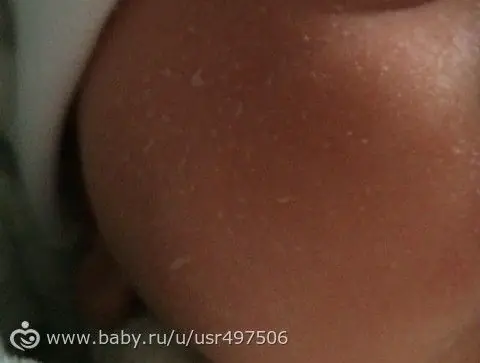
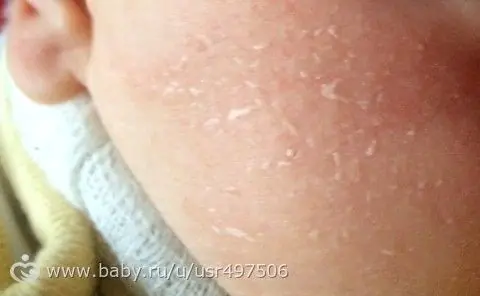
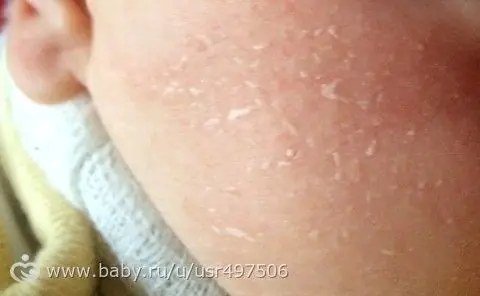



I applied a thin layer of Bepanten. Everything is over.

Don’t worry, it happened to us too, our pediatrician says that I made a mistake in my diet, so the baby was covered in red pimples, then a rough crust appeared on his face, I applied baby cream, sometimes bipanten, or completely forgot. And now everything is fine, the skin is clean, silky, everything will go away on its own, don’t worry too much, everything will be ok!


didn't you ask the doctor? What if it's an allergy? It cannot be covered with creams. I need some antihistamine. We are saving ourselves with fenestyl (drops).




I still don’t think it would be a bad idea to consult a pediatrician)




I am still breastfeeding, my son is already a year old, and there has never been any allergy to my milk, which regularly splashes on his face when he is distracted at the peak of lactation. And I don’t wash my face after milk. This is not sulfuric acid, but mother's milk! Nothing to peel off.
But this happens with babies; it’s an adaptation to the air and ambient temperature. But of course there could be an allergy, but definitely not to milk.
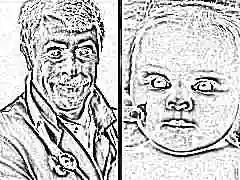
Every mother really wants her baby to look like in the commercial - plump, smiling, with soft velvety skin that you just want to rub your cheek against. However, in practice, babies do not always look so appetizing, and such a problem as dry skin in a child gives his parents a lot of reasons for worry. Authoritative children's doctor Evgeniy Komarovsky tells what reasons can cause dry skin in a baby, and what parents should do.
Features of children's skin
A baby's skin is significantly different from the skin of its parents. She is more vulnerable, gentle. Sweat glands are not sufficiently developed in the first year of life, and therefore the baby has to give off excess heat through pulmonary breathing. If at the same time the baby has to breathe too dry air, or he lives in a room where, thanks to the efforts of his mother and grandmother, it is hot all the time, then the load on the immature sweat glands increases and the skin deteriorates.
The stratum corneum (the uppermost layer) of children's skin is well supplied with blood, so any scratches on a baby heal faster than on an adult. However, the stratum corneum, which is thin and loosely connected to other skin layers, creates favorable conditions for irritation and injury.
Initially, dry skin in babies practically never occurs due to the saturation of lipids - an innate feature of all toddlers. But these fats perfectly dissolve most of the chemicals that are contained in washing powder, soap, and urine, and therefore inflammation of the skin in children is common. Dry skin can also be caused by health problems.
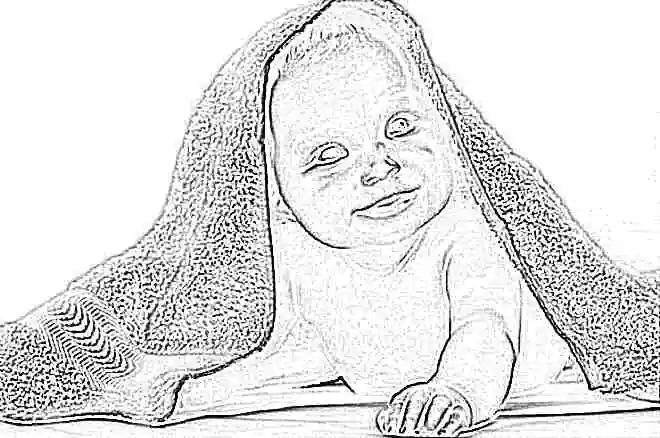
Causes of dryness
The most common cause of dryness, in which the skin becomes somewhat rough to the touch, is contact dermatitis, says Evgeny Komarovsky. In this case, the skin is damaged due to contact with chemicals contained in washing powder or in household chemicals that the mother uses for cleaning. Contact dermatitis often occurs in response to chlorinated tap water used to bathe and wash a child.
If the skin on the lips of a child dries out, causing the lips to crack, there may be several reasons:
- dry air in the room;
- vitamin A deficiency;
- side effects of certain medications;
- allergic reaction;
- herpes virus.
If a child has dry skin on the cheeks or nose, as a result of which it often peels off, we can talk about a lack of vitamins E, A, as well as allergies.
In 90% of cases, dry skin of a toddler is caused by parents violating the rules of a favorable microclimate - the house is hot and dry.

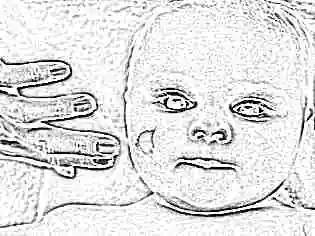
Treatment
Contact dermatitis, in which the lesions are minor and appear as small dry patches, is eliminated by the use of topical moisturizers, such as baby creams containing aloe. The most effective local medicine, according to Evgeniy Komarovsky, is Bepanten ointment or cream. For more extensive lesions, the microclimate in the room where the child is located should be changed.
Bathing water must be boiled or filtered, bedding and baby clothes must be washed exclusively with a special baby powder, which is marked “Hypoallergenic” on the packaging. After washing, things should be additionally rinsed not with ordinary tap water, but with pre-boiled water, since during the boiling process the liquid gets rid of chlorine.
In the next video, Dr. Komarovsky talks about skin problems with allergic dermatitis.
If the skin is dry due to an allergic reaction, the doctor may prescribe antihistamines; it will be necessary to find the true cause of the body’s inadequate reaction. This is the task of an allergist, and parents need to make sure that the child does not have contact with the most common allergens - animal hair, dust, pollen, chemicals and chlorine. It is important to ensure that the baby does not sweat, so you should not overwrap him or overheat the room.
Chapped lips and rough skin on the cheeks and nose are treated according to the reason why they are cracked or dry. Oil solutions of vitamins A and E are almost always prescribed. Sea buckthorn oil is recommended for topical use; for lips, you can use hygienic moisturizing lipstick with aloe. The child should drink more fluids. For cracking of the skin of the feet, heels and toes, local antifungal therapy and the same sea buckthorn oil can be prescribed.
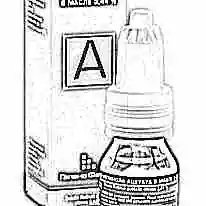
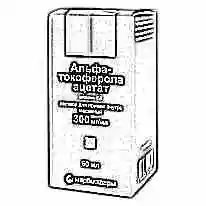
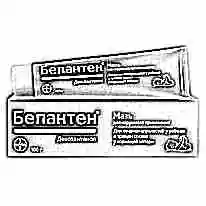
Advice from Dr. Komarovsky
Many problems with dry skin can be solved simply by creating normal conditions for the child. It doesn’t really matter how old the offspring is - 1 year or 15, he should breathe cool and sufficiently humidified air. If you maintain the temperature in the apartment at 18-20 degrees, and the relative air humidity at 50-70%, then ointments and creams may not be needed at all, because with such environmental parameters the skin rarely dries out.
For children who have already had this happen, dermatologists advise (and Komarovsky completely agrees with them!) not to use hot baths for bathing, it is better to limit yourself to warm water, and less often to use detergents - gels, foams and shampoos. It is enough to use baby soap once a week. Bathing time for such babies should not exceed 10-15 minutes, and the door to the bathtub should be closed tightly so as not to reduce air humidity. After bathing a child with dry skin, you should not dry it with a towel, but gently pat it dry.
When choosing a moisturizer, parents should give preference to options with added oils. You should not use gels and shampoos with a strong odor, rich perfume additives and dyes. From a huge range of soaps, it is better to choose liquid baby soap.
Parents of a child with dry skin should make sure that the toddler, crawling or playing, does not rub against carpets, so that clothes do not rub his “problem” areas. Particular attention should be paid to the choice of a disposable diaper; it is best to give preference to manufacturers who add a layer impregnated with aloe balm to the diaper.
A child with a tendency to dry skin should not stay in the open sun for long periods of time. If there is a vacation by the sea, the mother must make sure that the child is smeared with moisturizers with UV protection, and in the evening, after a shower, with baby cream.
When a newborn's facial skin peels, it always causes panic among parents. The child’s dermis is very delicate, and the immune system is not yet strong enough to resist pathogenic bacteria. Therefore, at the first appearance of dehydration in a baby, you need to pay attention to this alarming symptom. 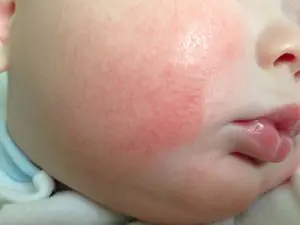
Features of the appearance of peeling
The human body, as you know, is almost 80% water. In newborns, this percentage is slightly higher. It is water that a child loses after birth.
The presence of sufficient amounts of valga is a key component in maintaining the infant’s homeostasis. A decrease in the level of hydration is manifested in a change in the moisture content of the dermis.
The newborn's face is different from the picture shown in the advertisement. After birth, the natural process of self-cleansing of the dermis begins - during this period, skin respiration is established. Sweat glands gradually begin to activate, the process of activation of which occurs through self-cleaning. This leads to the appearance of redness and spots.
Since at this age the connection between the layers of the dermis is not yet strong enough, peeling and dryness can occur even with minor exposure. However, you should not try to carry out treatment on your own when the skin on your baby’s face is peeling. Changes in the level of moisture may indicate the presence of disorders in the baby’s body.
Why does my baby's skin peel?
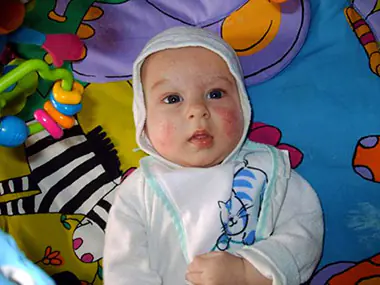
The neonatal period is a transitional period between intrauterine development and independent life, separate from the mother’s body.
Often, changes occurring in the body also affect the condition of the newborn’s dermis.
There are several main factors that can cause a baby to have dry skin on the face:
- Excessive dry air. This phenomenon usually occurs due to excessive use of heaters or high power of central heating batteries. In such a situation, the use of an air conditioner, which dries out the air, can also be the “culprit”. With a lack of fluid, not only the epidermis is dehydrated, but also the mucous membranes, which leads to difficulty breathing.
- Excessive use of synthetic fabrics. Synthetics do not conduct moisture well, so they interfere with the natural absorption of liquid from the air by the upper layers of the epidermis. In addition, it causes irritation of the dermis with constant exposure. And this manifests itself as a rash and dryness.
- Vitamin deficiency. Namely, vitamin A and nicotinic acid (vitamin PP). They ensure normal hydration of the dermis and control the integrity of the lipid layer of biological membranes.
- Constant use of soap. It causes a decrease in the natural lipid layer. This leads to rapid loss of fluid from the surface of the dermis, which causes peeling and dryness.
- Dietary disorders. Peeling skin on a newborn's face may be a reaction to the mother eating unwanted foods. Therefore, if such a problem arises, you definitely need to analyze your own diet.
- Allergy. If your child has peeling skin on his cheeks, this may be a sign of an allergic reaction to complementary foods.
- Atopic dermatitis. A serious disease that occurs as a severe allergic reaction. Atopy requires the use of specialized products that carefully restore the hydrolipidic protective layer of the dermis. The prescription of such drugs is carried out only in consultation with a doctor.
- Ichthyosis. A hereditary pathology that manifests itself in disruption of the synthesis of protein molecules in the skin. This, as a result, leads to a change in the texture of the surface of the dermis - it becomes drier and crusts begin to form on it. Ichthyosis can appear in any area.
- Severe loss of moisture. This condition occurs when the baby has a long-term intestinal disorder or frequent vomiting.
There can be many reasons for the appearance of dry skin on a child’s face. If, even after eliminating the most common factors, poor hydration remains, you should immediately contact your pediatrician.
What to do if your child has peeling skin on his face?
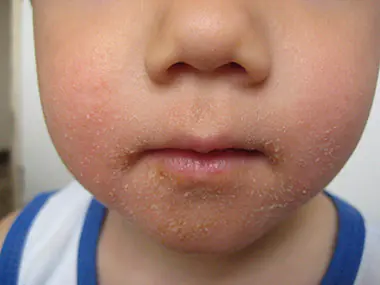
Maintaining the level of moisture in the dermis is a necessary measure to ensure its health.
The dermis is a natural protective barrier that protects the body from pathogenic microorganisms.
Therefore, a violation of its integrity may lead to increased susceptibility to pathogens.
To restore moisture levels, you need to follow several recommendations:
- Regularly carry out wet cleaning in the room where the baby is. This measure will help not only maintain the hygienic condition of the apartment, but also helps to humidify the air due to the liquid evaporating from the floor surface.
Important: When performing wet cleaning, you should refrain from using antibacterial agents. During the first year of life, a child develops immunity, and therefore such drugs can cause allergic reactions in adulthood.
- Using a humidifier is a great way to maintain humidity levels. It will help partially clear the air of dust. With a normal level of moisture, skin gas exchange is more active, and therefore the integrity of the skin is preserved.
- Don't use conditioner. Operating an air conditioner, in addition to maintaining the temperature, causes drying out of the air. And this can already provoke drying of the epidermis.
- Get rid of synthetic clothing and bedding. It disrupts the normal evaporation of moisture and its absorption by the skin. This causes dryness, rash, and peeling.
- When breastfeeding, avoid foods that can cause allergies. This is especially true for the first few months of a child’s life.
- Keep a food diary. If your baby suddenly has dry skin on his face, this may indicate a food allergy. In this case, analysis of the food diary will help identify the allergen and eliminate it from the diet.
- When going outside, you should use a special protective cream for children's skin. It will not only moisturize, but also create a protective layer that will protect against moisture loss.
- Avoid untested products. Do not use new creams or untested products to treat dryness. Anti-atopy products and protective creams may contain hormonal components. Use only the cream that your doctor recommends.
Don't panic if the skin on your newborn's face is peeling. This is often a natural process of adaptation to environmental conditions that occurs after birth. But, if the problem persists for a long time, it is recommended to consult a doctor for advice.



